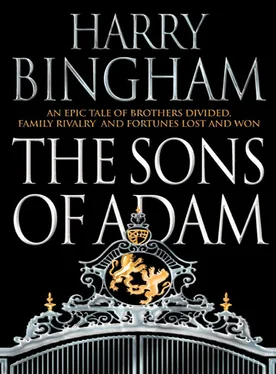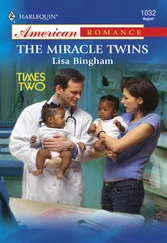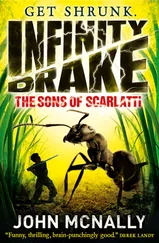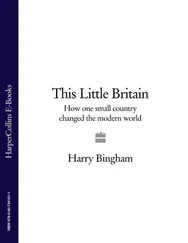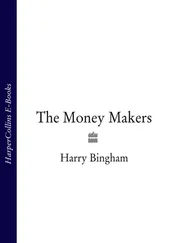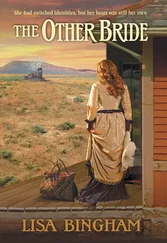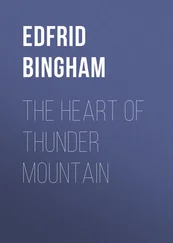‘Sate sanguine divum, Tros Anchisiade, facilis descensus Averno,’ continued the schoolmaster. ‘Creeley, translate for me, if you please.’
Tom said nothing. He didn’t move to open his books.
‘Creeley, if you please.’
Silence.
The schoolmaster frowned. ‘Montague, then. Translate for me, if you would.’
Alan too sat like a stone, staring down at his desk. Unlike Tom, who actually enjoyed these moments, Alan found them difficult – difficult, but in this case essential.
‘Am I to understand that neither of you has prepared today’s lesson? Creeley? Montague?’
Then Tom spoke. ‘Please, sir, we would prefer to study Persian.’
Six minutes later, the two boys were standing in front of Sir Adam. A cane lay on the table in front of them. The cane was yellow and knobbled all the way along its length. It wasn’t an implement they’d seen used very much, but that didn’t mean it mightn’t be now. Tom and Alan stared at it unhappily.
‘You won’t learn your Latin?’ said Sir Adam.
Tom shook his head, slightly but definitely.
Alan echoed his twin’s gesture, but added, ‘We don’t mind learning Latin, Father, but we think it would be better to learn something useful as well.’
‘Persian? That’s your idea of useful, is it?’
The two boys exchanged glances. So close was their communication, they hardly had to speak to understand each other. It was a fact of life that the adults of the family needed to get used to. Alan nodded slightly to Tom, as though to confirm some invisible agreement.
‘It’s for the oil, you see,’ said Alan reasonably. ‘We’re going to need to speak the language.’
Sir Adam held his hand over his mouth. The two boys looked back at each other, then at the bamboo cane.
‘If you boys want to learn Persian, I suppose that might be arranged,’ said Sir Adam. ‘What I don’t like is the fact that you didn’t prepare your Latin lesson. That’s no way to win an argument.’
‘Oh, but we did,’ said Alan.
‘You did? That’s not what –’
‘Of course we did, Father,’ Alan interrupted, supplying a quick translation from the morning’s lesson. ‘We only said we didn’t because we didn’t think anyone would take notice of us otherwise.’
Sir Adam frowned. ‘You could have asked. If you had –’
‘I did ask,’ said Tom, interrupting. ‘Twice. Two weeks ago at breakfast. Again last week.’ He spoke with a kind of flat stubbornness; not exactly asking for trouble, but quite ready for it if it came. ‘You kept saying maybe.’
‘Very well, then. Persian it is. I shall give you the first few lessons myself, until I can find a schoolmaster to take over.’
‘Thank you, Father.’
It was Alan who spoke, but with the two boys it hardly mattered which of them said the words: each always spoke for them both.
‘Good. Then it’s back to your Latin. At least, I assume so. Unless you have any other ideas I should know about?’
His tone was sarcastic, but sarcasm has a habit of bouncing off eight-year-olds. The two boys exchanged glances again. This time, it was Tom’s turn to speak.
‘Thank you, Uncle, yes. We think it’s high time we learned some geology.’
Tom’s face looked perfectly innocent, but Sir Adam knew that the look concealed a will of steel. The older man was exasperated, but proud. Proud and fond. He rumpled the two boys’ heads.
‘Geology too, eh, Tommy? Very well then, geology too.’
For two long years, the drillers drilled.
1902 and 1903 passed away. Knox D’Arcy, by now a family friend, kept Sir Adam closely informed about his progress out in Persia. Sir Adam told Alan and Tom. Conditions were almost intolerable. Heat, dust, insects, equipment failures and disease were turning the search for oil into a nightmare. Costs spiralled wildly upwards. Even a man as rich as D’Arcy began to worry about the impact on his purse.
But that wasn’t the worst of it.
The worst was simply this: so far, two years and hundreds of thousands of pounds into the search, no oil had been found.
Tom somehow managed to maintain his enthusiasm, though each new disappointment was like a personal setback. The two boys stuck to their Persian studies, but when Sir Adam suggested that their lessons be reduced from three a week to just one, neither boy objected. Their geological studies continued for a while, then lapsed when their teacher moved abroad. Sir Adam didn’t seek a new teacher. The children didn’t ask that he did.
And then it changed.
One marvellous day, in January 1904, when the two boys were ten years old, a telegram came from Knox D’Arcy in London. ‘GLORIOUS NEWS,’ he cabled, ‘OIL AT LAST.’
Tom went wild.
When he saw the telegram, he let out a yelp of excitement so loud that the dogs were set barking as far away as the stable yard. Together with Alan, he set off on a dance of delight that sent him tearing right through the house, right through the grounds, down to his father’s cottage and then back again. Tom’s joyous energy lasted all that day.
At dinner that night, when Guy happened to admire the new gunroom that Sir Adam had installed, Tom nodded his young head and commented, ‘Yes, Uncle, you’ve done it very well. I shall do it like that in my country house, when I get it.’
It was Guy who cracked first.
There was something about Tom’s new-found confidence that he couldn’t stand. The enmity that simmered between the two of them crackled and spat with renewed energy. Boiling point arrived one weekend in early February, when the house was full of guests – including the pretty young daughter of an earl, whom eighteen-year-old Guy was sweet on.
‘Fetch my horse, stable boy!’ said Guy, passing Tom in the hallway and casually reaching out to flick his ear.
Tom stopped dead.
‘Your horse?’
‘You heard me, stable boy. I feel like riding today.’
Tom’s face whitened. The seven-year age gap between the two of them had never held Tom back from a physical confrontation when necessary. He looked Guy up and down, from boots to head and back again. His gaze seemed to assess Guy truthfully for the very first time. Then he dropped his gaze. He shrugged and said, ‘If you like. I don’t mind. I’m going that way anyway.’ He sauntered off.
Guy couldn’t quite believe that Tom was going to do as he’d asked, but didn’t mind waiting to see. A group of house guests emerged from the drawing room and Guy strolled with them to the front of the house. Guy, in riding costume, stood and chatted. The earl’s daughter was there and Guy (slightly plump still, but charming and handsome enough to make up) stood swishing his whip and trying to impress her. She laughed a lot and blushed slightly when she caught his eye.
Then Tom arrived.
He had complied with Guy’s request to the letter – or very nearly. He had gone to the stable yard and saddled a mount. He led the animal in question by its bridle to the spot that Guy had indicated.
But it wasn’t Guy’s grey mare he led. It was the donkey Guy had learned to ride on, a dozen years before. Guy’s saddle and stirrups drooped ridiculously low off the donkey’s back. The animal was old now and nodded its head ludicrously as it walked, as though deliberately setting out to provoke laughter. Tom himself walked with the exaggerated dignity of an expensive manservant. He had even, absurdly, found a pair of white gloves from somewhere and an old footman’s cap.
‘Your horse, sir.’
The assembled house guests laughed and clapped at the spectacle. It seemed like a harmless comic turn, deserving its applause. But Tom hadn’t finished. He brought the horse close to Guy and his girl, before addressing the girl in a confidential whisper.
Читать дальше
